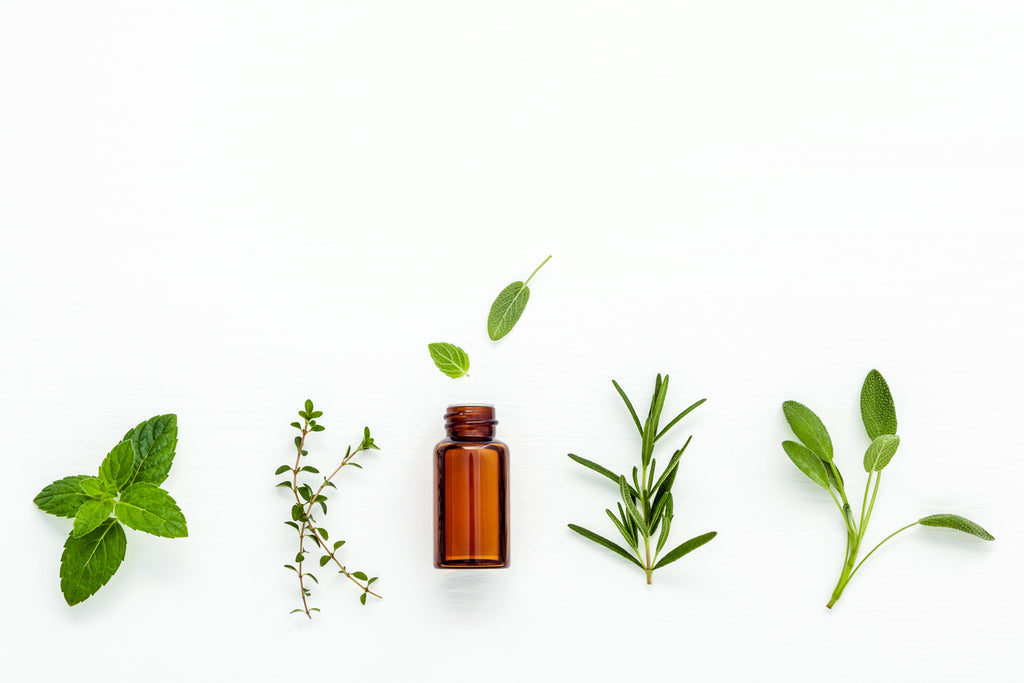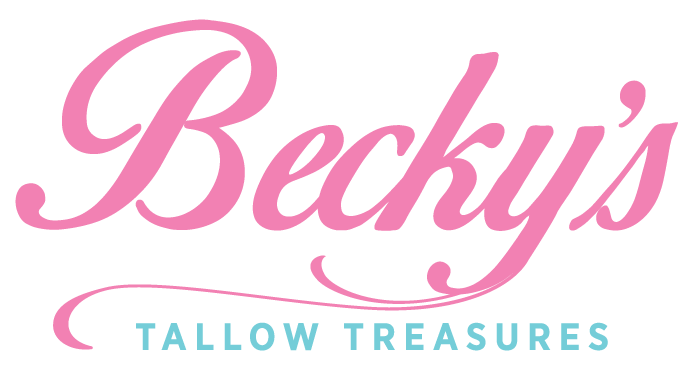
The most popular question I get at the farmer's market is "what brand of essential oils do you use?"
It seems that these days, everyone's heard of national brands DoTerra and YoungLiving, as these companies spend a lot of time and money branding their essential oil products and getting the word out through multi-level marketing (MLM) strategies.
You can't scroll through your Facebook feed without seeing a friend promoting their MLM business these days. Your friendly neighborhood distributor of scented candles and essential oils really hustles to make a buck, but the cost you pay has to cover her efforts, as well as provide kickbacks to the distributors higher up the chain. We won't even talk about all the conferences and motivational programs these companies produce to train and energize their independent sales force, or all the other overhead involved in operating a reputable international company.
I'm not knocking these major brands or the people who sell them, but since the topic comes up, I thought I'd talk about how and why *I* source my essential oils.
I purchase my essential oils directly from farmers, just like these major brands do.
It wouldn't make sense for me to pay retail (or multi-level marketing) prices for a product if I can source the key ingredients myself. I pay wholesale prices for quality ingredients. While I don't have the purchasing power of the "big guys", neither do I have the high-volume demands. This means I can do business with a broader scope of suppliers. I might pay more to the tiny, artisan-quality essential oil supplier, but when they can cater to my high standards and custom orders, it's worth it.
When there's no middleman, I can have better quality oversight.
When I work directly with my suppliers, I have a better sense of their own values and methods. Did you know that soil types, rainfall, harvest methods, and specific farming practices affect the quality of the plant from which essential oils are made? This is why it's so difficult to develop a baseline for determining product strength. But when I have a relationship with the growers, I have a better idea of what I'm getting.
What about "Therapeutic Grading" and "Purity Certification?"
Guess what? There is no governing body that grades or certifies essential oils for specific uses or so-called "purity". You can choose oils created from organically-grown producers (whether the farms are certified as organic or not) but most of the claims you'll see on labels and marketing materials are, in fact, misleading.
This is because the big companies created their own trademarked certifications. Here's a tidbit from DoTerra's website: "Without an accepted standard for essential oil quality, doTERRA created its own testing process, calling it CPTG Certified Pure Therapeutic Grade®"
While it's commendable that companies invest in a process to determine quality standards for their own products (just as I do) self-certification is not the same as industry oversight. Some might argue that their labeling is misleading since consumers equate terms like "certified pure" with accredited certification agencies developed specifically to hold producers and manufacturers accountable for their marketing claims.

Big names don't necessarily mean better reputations
This should go without saying, but still, it's human nature to trust names with which we're familiar. Young Living and DoTerra put a lot of effort into assuring the public of their commitment to sustainability but in 2017, Young Living pleaded guilty to federal charges for illegal trafficking of endangered rosewood spikenard oils.
According to the U.S. Justice Department, "The Company lacked an internal compliance program or formal procedures, training, or means to review and resolve problems and identify and stop potential violations." While Young Living has worked hard to correct their sourcing and internal oversight issues and cooperated with the government investigation after the issue came to light, it goes to show that big names succumb to big pressures. Self-regulation isn't bulletproof, especially when there are so many layers of the onion, so to speak.
How does Becky's Tallow Treasures measure up?
What you see is what you get. What *I* see is what you get. I built my company based on my own values, so it's important to me to know where my ingredients come from, whether they be organic plant-based essential oils, tallow from grass-finished animals raised on small family farms, or the materials from which my packaging products are made.
I'm a small business, and while profit margin can be razor-thin in comparison to national brands, I'm not pressured by stockholders to sacrifice my values for the sake of the bottom line.
I'm accountable to my customers, who trust me to remain transparent in my sourcing and production methods. I create my soaps, balms, lotions, and shampoos from the ground up (well, okay, my farm partners handle the "ground" part) and I can make adjustments to recipes according to the unique natural characteristics of that season's crop and the resulting essential oil product.
Do you have a question about the carriers in my essential oils? Just ask! Do you want to know the region from which a particular herb was harvested? I'd love to tell you!
One of the best things about my job and the products I create is that I can't do it without having such a close connection to my suppliers and my customers. I use safe, organic oils and naturally-raised ingredients, and my success thrives on direct customer interaction rather than stock reports and animal testing.
So no, I don't use the big name brands for my ingredients. It's not worth the cost or convenience. I trust my farmers because I know them and trust their practices and hey...why would I want to give up the chance to visit fields of lavender, or stroll through green pastures to get my face licked by ethically-raised cows? Quality control and supplier oversight are one of the most gratifying parts of my job. I'm grateful I get to do what I love, and of course success is important to me, but "going big" sometimes means giving up too much.




How do you recover a stolen bitcoin lost to an investment use BLOCKCHAIN CYBER RETRIEVE
Losing $90,000 nearly broke me. I was scared, embarrassed, and completely overwhelmed. Every day felt heavier than the last, and after getting fooled by a few so-called recovery companies, I honestly felt like I had no strength left. Then I found BLOCKCHAIN CYBER RETRIEVE, and for the first time in months, I felt a small sense of hope. They listened without judging, explained everything clearly, and kept me updated so I didn’t feel alone. When they finally recovered my funds, the relief that washed over me was unbelievable. It felt like a weight I’d been carrying forever was finally lifted. if you ever fall victims to such opportunities dont hesitate to hire BLOCKCHAIN CYBER RETRIEVE.
CONTACT DETAILS:
WHATSAPP:+1 5 2 0 5 6 4 8 3 0 0
TELEGRAM; +1 8 1 4 4 2 8 3 2 1 2
EMAIL;b l o c k c h a i n c y b e r r e t r i e v e @ post.com